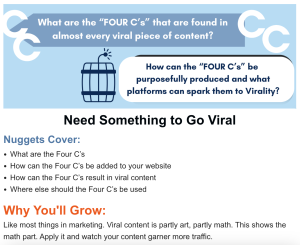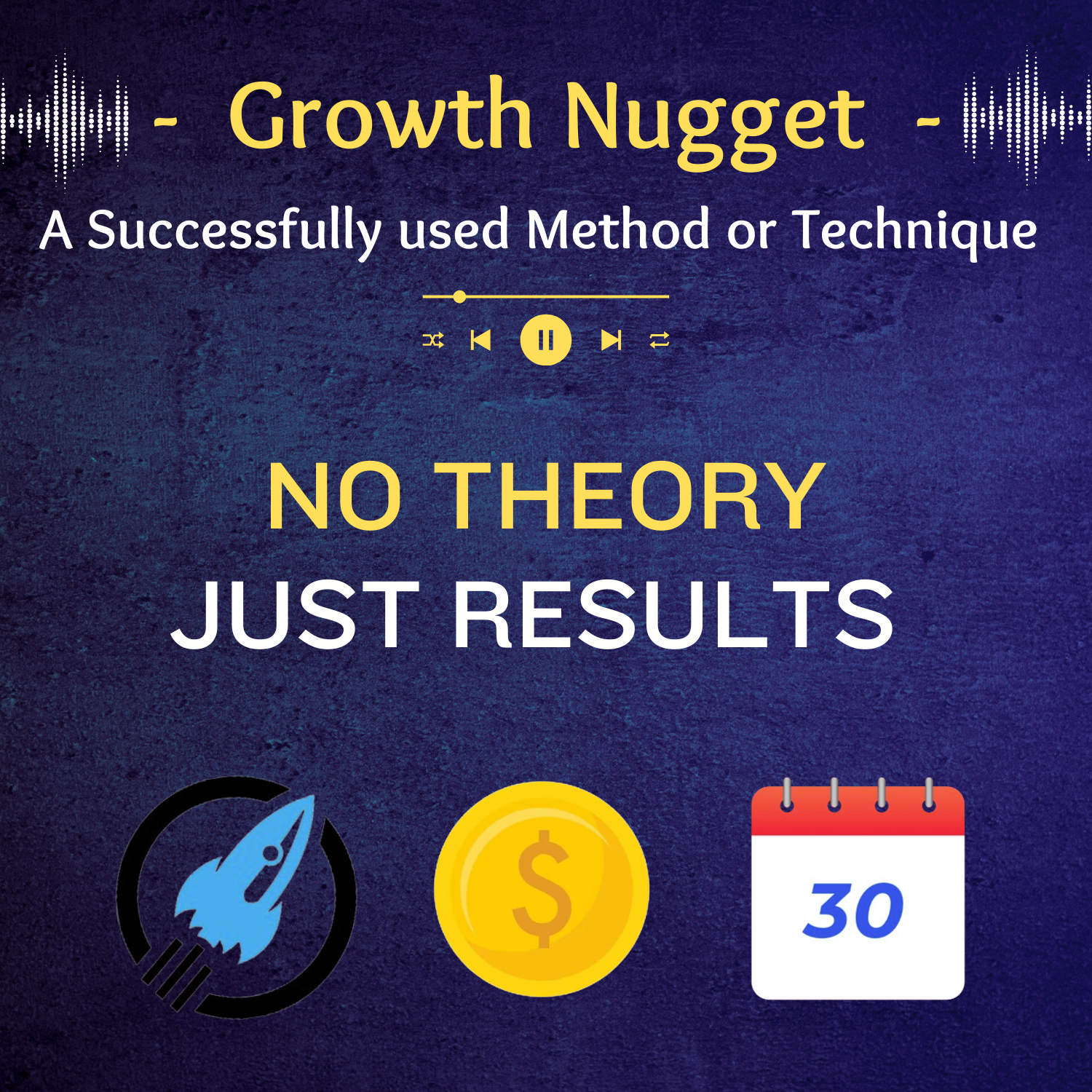Do You Know The 4 C’s?
$23.00
Should be added to any digital marketing strategy or content plan
Are you aware that 85% of all pieces of content that go viral are due to one of the four C’s? If you know the 4 C’s, wouldn’t it make sense to write your content and cut all your videos making sure they have at least two of the four C’s at all times? What if you could get all four C’s in a single piece of content? Now we’re talking. An incredible nugget that all business leaders need to hear and understand.

Should be added to any digital marketing strategy or content plan
Are you aware that 85% of all pieces of content that go viral are due to one of the four C’s? If you know the 4 C’s, wouldn’t it make sense to write your content and cut all your videos making sure they have at least two of the four C’s at all times? What if you could get all four C’s in a single piece of content? Now we’re talking. An incredible nugget that all business leaders need to hear and understand.
(0:00 – 2:31)
How can we write it? How can we display it? How can we use it? And why is content so important? Let’s get started. So, a couple questions here. What does Facebook, Plenty of Fish, Linda.com, and Google have in common? They are four of the largest websites in the world.
No question about that. Facebook’s Facebook. Plenty of Fish is a dating website that was displayed late 2008, 2009 on Inc.
Magazine, making so much money. And the story behind it is great. Linda.com, that’s L-Y-N-D-A dot com, just sold to LinkedIn for a billion and a half.
And of course, I think most people know Google. What’s kind of intriguing about those four, and it’s definitely not the centerpiece of this episode, is that those four websites, they’re four of the top ten largest, I think, in the world. They have almost virtually zero of their own content on those websites.
So, Facebook, user-generated content. Plenty of Fish, user-generated content. Linda.com, user-generated content.
Google.com, user-generated content. But the key point I’m trying to make here to kickstart things is that those four sites are all centered around content. Intuit, QuickBooks, just bought Mint.com a couple years ago for $172 million, and it had yet to generate a dollar of income.
That site was simply growing so fast, and the young man that built it had not figured out how to monetize it yet. Intuit looked at it and said, holy cow, look at that. What could we do with that traffic? So, I’m here to tell you, content is incredible.
So, here’s some statements. You ready? The most expensive product in the world is content. The most desired product in the world is content.
And the most evergreen industry in the world is content. If you were trying to pick an industry for your kids, what industry should you go into? Throw out everything and just tell them, get in the world of content, content creation, marketing of content, display of content. It really doesn’t matter.
If they can master a tiny sliver of the content world, holy cow. So, content is king. But here’s the key.
(2:32 – 4:01)
It is the delivery of content that is King Kong. I’m going to share some of the techniques and even the secrets that we have found. And we do a lot of cases.
We do a lot of internal split testing. We are always in the pursuit of, you know, how come these 10 sites are making more than these 10 sites and they’re built by the same people, same marketing. And it always, when we do the investigation, it always boils down to something with either the pace of the content, the type of content, the display mechanism of the content.
So, let’s kind of just dig in. Question for you. If you heard how Google ranks, would you know the big three of what Google’s looking for? Of course you would.
Well, right in the middle of there, the second one is called social signals. So, when Google sees pages of content inside of a website getting shared on web 2.0 platforms like Pinterest and Twitter and Facebook, those kind of things, they move that website up higher in the Google rankings on all of its major keywords. Why? Because one of the critical factors Google’s looking for is are there really human beings sharing content on that website? If there is nobody sharing any content on that website, I can assure you the odds of that website ever showing up on page 1, 2, 3 of Google for anything is close to zero.


